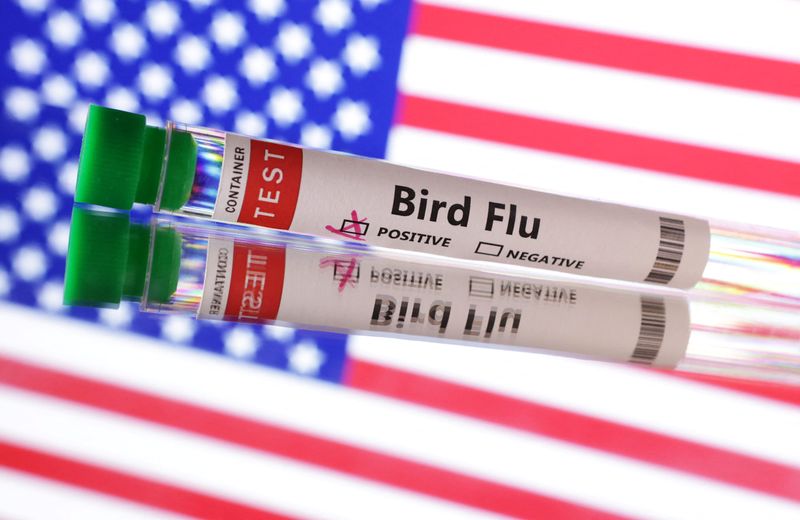
By Leah Douglas and Tom Polansek
CHICAGO (Reuters) -H5N1 bird flu was detected in a pig in a backyard farm in Oregon, the first detection of the virus in swine in the country, the U.S. Department of Agriculture said on Wednesday.
Pigs were the source of the H1N1 flu pandemic, and have been implicated as the source of others, said Richard Webby, a St. Jude Children’s Research Hospital virologist who studies flu in animals and birds for the World Health Organization.
The finding of the virus in a small farm makes the pig infection less of a concern than if it had been detected in a commercial pig farm, he said.
“I think it probably doesn’t increase the risk much, but surely, if this virus starts transmitting in pigs, that absolutely increases the risk,” he said.
The USDA said there is no risk to the nation’s pork supply from the Oregon case and that the risk to the public from bird flu remains low.
The Oregon farm has been quarantined, and other animals there, including sheep and goats, are under surveillance, USDA said.
Pigs and poultry on the farm were culled to prevent the spread of the virus and enable additional testing of the swine, USDA said. Tests are still pending for two of the pigs, the agency said.
The pigs were not intended for the commercial food supply, and there is no concern about the safety of the nation’s pork supply, according to the agency.
Poultry and swine on the backyard farm shared water sources, housing and equipment, which have all served as pathways for transmitting the virus between animals in other states, USDA said.

This year, 36 people have tested positive for bird flu as the virus has spread to nearly 400 dairy herds. All but one of the people were farm workers who had known contact with infected animals.
Since 2022, the virus has wiped out more than 100 million poultry birds in the nation’s worst-ever bird flu outbreak.
This post is originally published on INVESTING.




